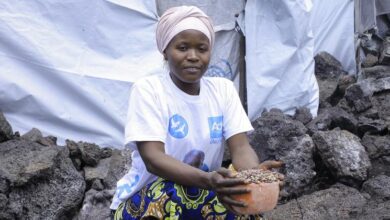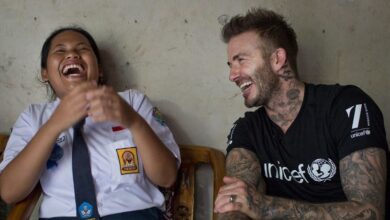Mpox Alert: UNICEF launches $58.8 million appeal to stop disease outbreak in Africa


“Children in Burundi are bearing the brunt of the measles outbreak with alarming infection rates and health impacts,” Dr. Paul Ngwakum said, UNICEF Regional Health Adviser for Eastern and Southern Africa. “Of the nearly 600 cases reported, two-thirds are children under 19 years of age and the situation is escalating really rapidly with more [a] 40 percent increase in cases in the past three weeks“ .
To date, there have been more than 14,000 suspected cases of mpox in Burundi, but no deaths from the disease have been reported. However, neighboring Democratic Republic of Congo has recorded nearly 21,900 suspected cases and 717 deaths.
UNICEF officials stressed that with funding and quick action in Burundi, “We have a chance to end this outbreak in a very short time because the geographical area is quite limited and with a joint effort from all partners, I think, we can limit the spread; We can contain the virus so we can stop the outbreak without causing any loss of life.”
Make the classroom safe
After the new school year began earlier this week in Burundi, the UN agency remains concerned about the rise in mpox among children under five, which accounts for 30 percent of reported cases – as in the DRC. To help teachers and parents understand the risks and minimize disruption, the UN agency has been supporting education authorities to implement school health measures, train staff to recognize early symptoms of mpox and promote hand hygiene.
“Make no mistake, we don’t have all the answers. No one does. This is a rapidly evolving situation, with a new, highly contagious strain, and we are learning more every day about the different modes of transmission. And as we learn more, we update our messaging and our response,” said Dr. Ngwakum.
UNICEF’s appeal will also provide mental health support for parents and frontline workers, who may face hostility from some communities partly because of mpox’s association with sex, which has been implicated in some – but not all – transmissions.
Harmful stigma
“Sex in Africa is not something that is talked about every day. And if they think you have an STD, that stigmatizes you,” Dr. Ngwakum explains. “We try to explain that this is not the case. Most children get the disease through body-to-body contact or contact with animals or contact with infected materials, with no connection to person-to-person sexual transmission.“ .
Communities also remain fearful of a repeat of previous serious health outbreaks such as Ebola disease or COVID-19“So we have an important role to play in dispelling myths and allaying fears,” the UNICEF official explained.
Highlighting the stark contrast between the large numbers of suspected mpox deaths in DRC and Burundi, Dr Margaret Harris from the United Nations World Health Organization (WHO) explained that the cause could be due to the protracted humanitarian emergency in eastern DRC.
“Many of the children we have seen dying horribly and sadly in the Democratic Republic of Congo are severely immunocompromised due to severe malnutrition and suffering from the effects of conflict and probably suffering from multiple other illnesses at the same time,” she told journalists in Geneva.




